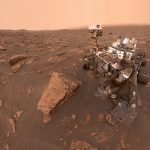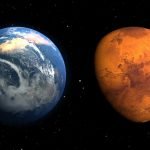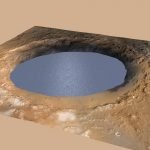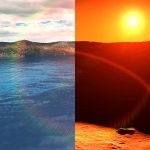Astronomers explain Mars’ watery reflections
There is water in many places on Mars, including most of both polar ice caps – all in the frozen form.
But recently, bright reflections...
Dust composite could be used to 3D print stuff on Mars
Mixing a small amount of simulated crushed Martian rock with a titanium alloy makes a stronger material in a 3D printing process that could...
Martian rock-metal could help 3D print on Mars
A little Martian dust appears to go a long way.
A small amount of simulated crushed Martian rock mixed with a titanium alloy made a...
Some sand on Mars is actually green, shows study
NASA’s rover Perseverance has made a startling discovery on Mars.
Many of the rocks in the Jezero Crater on Mars are composed of large grains...
Two surprising findings about water on Mars
A new analysis of seismic data from the InSight mission to Mars has revealed some surprises.
The first: the top 300 meters of the subsurface beneath...
MIT instrument could produce oxygen on Mars reliably
On the red and dusty surface of Mars, nearly 100 million miles from Earth, an instrument the size of a lunchbox is proving it...
When Mars may have had water
Scientists on NASA’s Perseverance mission made a surprising discovery about the composition of rock in Jezero Crater, one that will help them get a...
Mars has both red and green sands, shows study
The accepted view of Mars is red rocks and craters as far as the eye can see.
That’s much what scientists expected when they landed...
Mars model provides method for landing humans on Red Planet
A mathematical model developed by space medicine experts from The Australian National University (ANU) could be used to predict whether an astronaut can safely...
How to harvest resources on Mars with plasmas
Scientists came up with a plasma-based way to produce and separate oxygen within the Martian environment.
It's a complementary approach to NASA's Mars Oxygen In-Situ...










